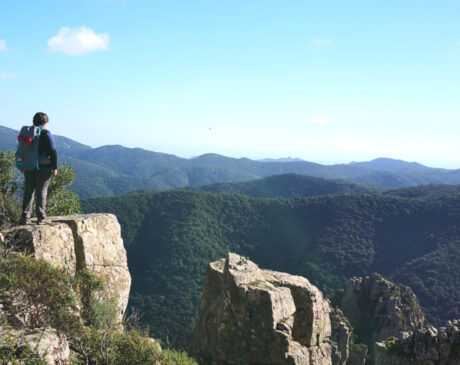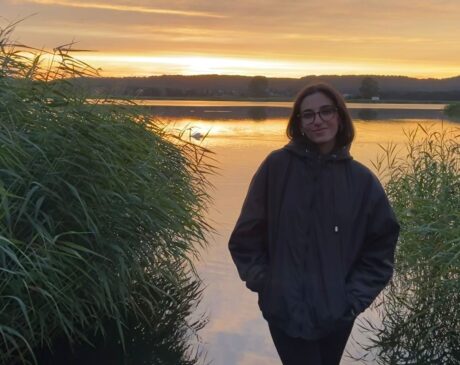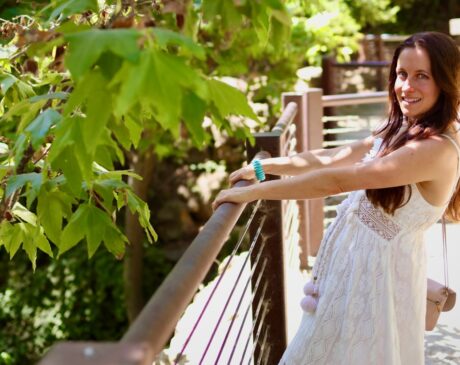Life Between Continents: Inside the Journey of Dr. Laura Princivalli, a Digital Nomad Psychologist in Bali
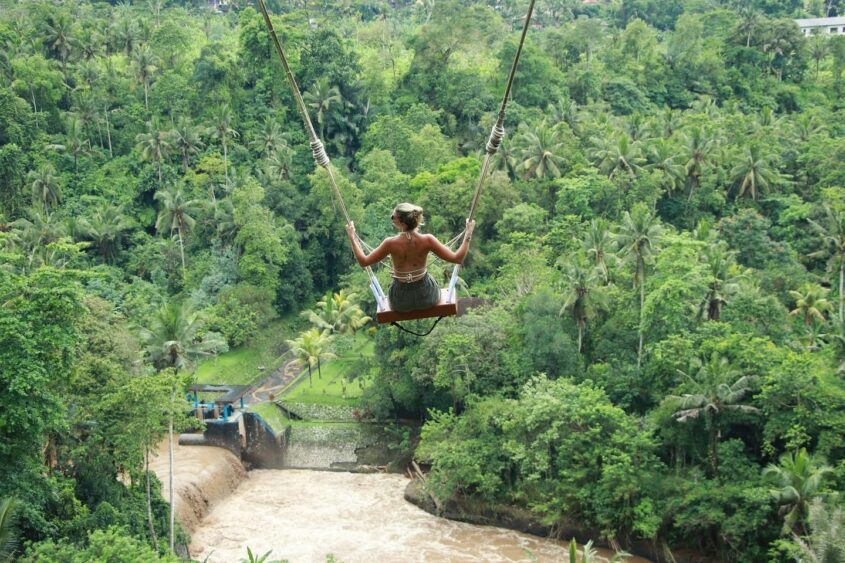
There are people who leave home in search of something new — and then there are those who discover that “home” can exist in more than one place. Dr. Laura Princivalli never set out to abandon Italy. She didn’t pack her life into a suitcase with the intention of not coming back. Instead, her journey unfolded quietly, almost unexpectedly, as if the world kept opening doors she hadn’t planned to walk through.
From the misty mornings of Northern Italy to the intense, earthy humidity of Bali’s jungles, her story is one of gentle shifts that lead to profound transformations. A psychologist who has learned to hold space for others from anywhere on the planet, Laura moves between continents with the same calm presence she brings to her work.
But this isn’t a story about escape. It’s about expansion — discovering that a life can stretch across multiple time zones, that identity can bloom in unfamiliar places, and that balance sometimes grows fastest far from where we first learned to seek it.
What happens when a person used to the rhythms of European cities lands in the pulsing heart of Asia? How do relationships, work, and self-perception evolve when your days are shaped by sunrises, monsoon rains, temple offerings, and the call of the ocean?
Laura’s reflections invite us into a world where connection doesn’t depend on geography, where routine adapts to landscape, and where slowing down becomes its own quiet revolution.
Keep reading — her journey may just make you rethink what home really means.
In this interview, we explore the life of Dr. Laura Princivalli, a digital nomad psychologist who divides her year between Italy and Southeast Asia. Through her journey, we discover how online therapy, remote work, and a reflective approach to living can transform the meaning of home, balance, and personal growth.
Hi Laura! Can you tell us a bit about yourself for our readers?
Hi everyone! I’m Laura Princivalli. I work as an online psychologist and psychotherapist. I’m originally from Oderzo, a small town in the province of Treviso, and I’ve been living in Milan for eight years. It’s my home base now that I spend six months a year traveling, always chasing summer.
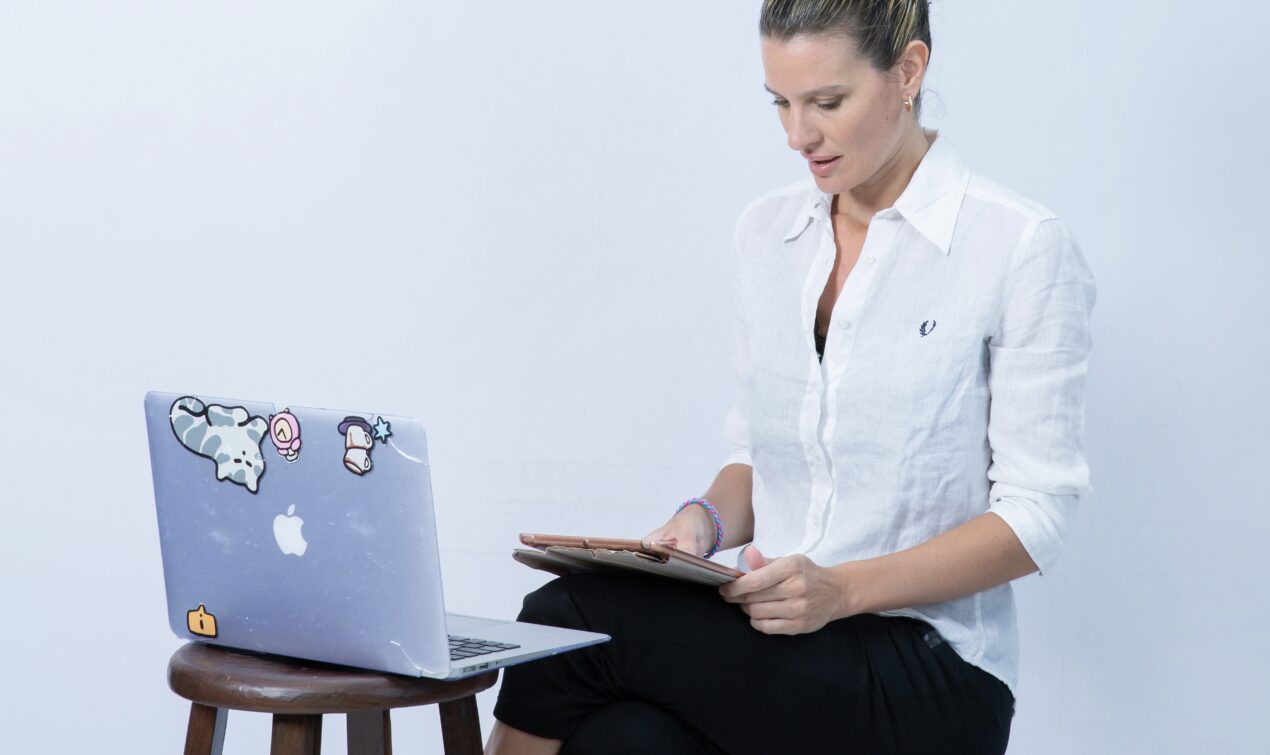
When did you realize you wanted to leave Italy and live abroad? Was it a gradual process or a sudden decision?
I never truly decided to leave Italy — and I haven’t really left it. Italy is still my place, one of my places at least, and the one I continue to choose as my point of return.
What developed gradually over the years, thanks to my work as an online psychotherapist, was the decision to add other places to my life. At first they were destinations to discover or pass through temporarily — places I would live in as both a nomad and a sedentary person at the same time — but in some way they have become, or perhaps have already become, additional “home bases.”
How was your first impact with Bali — the culture, the nature, the rhythm of life? Did you experience “culture shock”?
Bali was my culture shock — absolutely. It was my first encounter with Asia, after spending some time in Cape Town, the city where my digital-nomad journey began.
In 2022 I landed in Bali, where I planned to stay for three months before moving on to Thailand. I spent the first month and a half in Ubud, in the heart of the island, which is also its symbolic soul and holds many of its most beautiful traits.
Here (I’m actually writing from Bali right now), it was nature that taught me the rules — rules I didn’t know and never imagined would become so familiar: the animals, the rain, the water, the humidity of the jungle that clings to you instantly.
Bali is a gentle island (perhaps far too gentle with tourism). The people are kind, the rhythms and rituals are gentle, the spirituality infused into every daily gesture is gentle. You never feel alone. Yet even all this felt completely new compared to the life I was used to.
So I listened, I slowed down, I learned — with much more effort than one might imagine — but it was worth it. Bali is now a refuge for me.
What does your daily life in Bali look like today? Do you have a routine or ritual that helps you feel “at home” even far from Italy?
The six to seven hours of time difference lengthen my workdays, but they give me slow mornings that I use for working out and reading.
The gym, reading, and my work are the activities I take with me everywhere — they anchor my routine wherever I am.
Bali is also where I enjoy surfing for fun, practicing yoga regularly, and taking the time to pause for sunset.
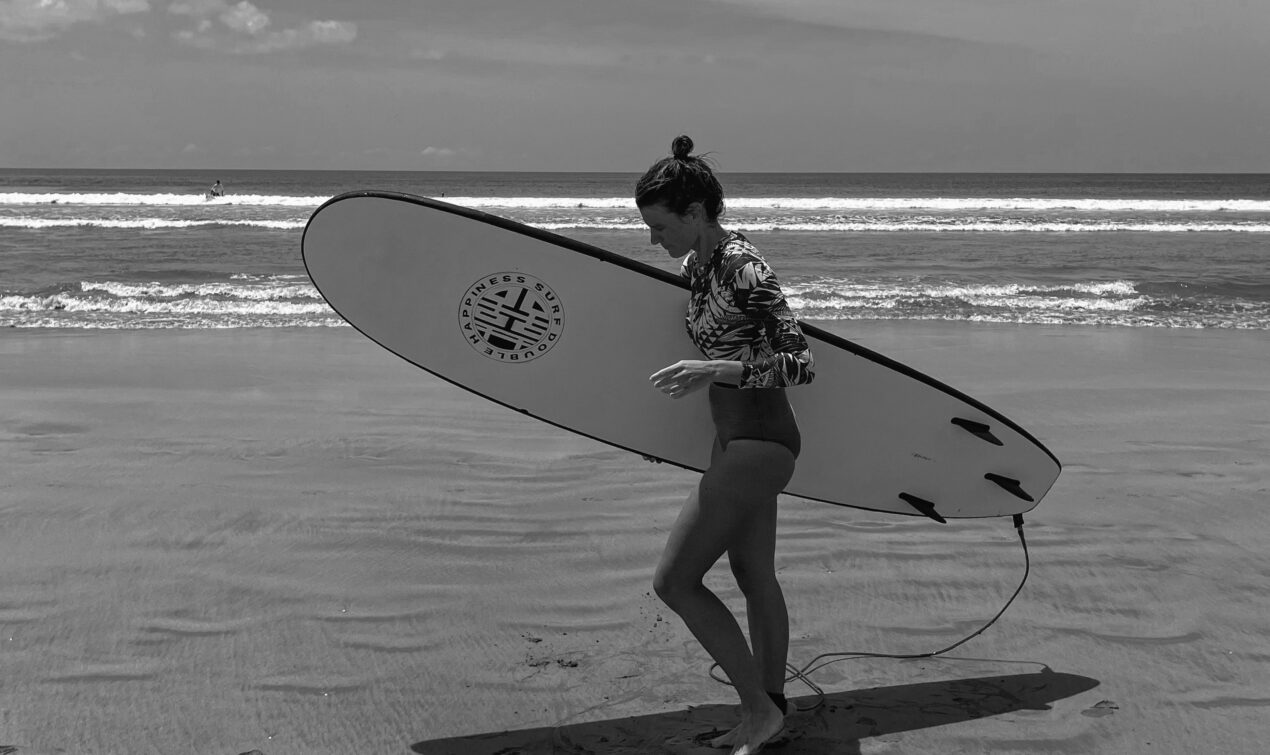
Your profession works well with the nomadic lifestyle since you operate online. How did you organize yourself to keep following your patients remotely while maintaining quality and continuity?
My professional practice was born online almost from the very beginning, so the people I work with have always received psychological support remotely. Whether I’m connected from Milan or from another continent, since I keep Italian working hours, nothing really changes for them.
What I do commit to is ensuring my presence by choosing locations where I can rely on the internet connection and where I can protect the privacy of each session in a proper work environment.
So any travel planning begins with selecting destinations that allow me to work effectively.
Living abroad can be transformative. Has Bali changed the way you see relationships, work, or yourself? If so, how?
This lifestyle — and especially my time in Asia — has definitely changed aspects of how I look at things.
First, my relationships: feeling the absence of certain people when I’m far away, and the fullness of connection and “being present” when I’m close to them.
And then, my relationship with myself.
It’s been a gradual, widespread shift — in my search for space, silence, and deeper bonds. A new kind of balance, which I don’t think is fully defined yet, and maybe never will be, but it has helped me, above all, to better integrate work within my life.
In your opinion, what are the biggest differences between life in Northern Italy and life in Bali — daily habits, relationship with time, food, or people?
Everything is very different: time, space, interactions. And of course, the food.
Life in Northern Italy unfolds from one place to another, moving through closed spaces at rhythms that feel like we’re setting them (even if that’s often an illusion).
In Bali, the day feels carved into the surrounding landscape. Most activities take place outdoors, meals are mostly eaten outside, temples and Balinese spirituality are everywhere — not confined to a closed building.
This shapes completely different daily habits, offering a sense of slowing down and sharing, in which you simply “are,” without really noticing who or what set those conditions.
Coming from Northern Italy, it can be very destabilizing — but once you find your own way to understand it, it becomes a relief.
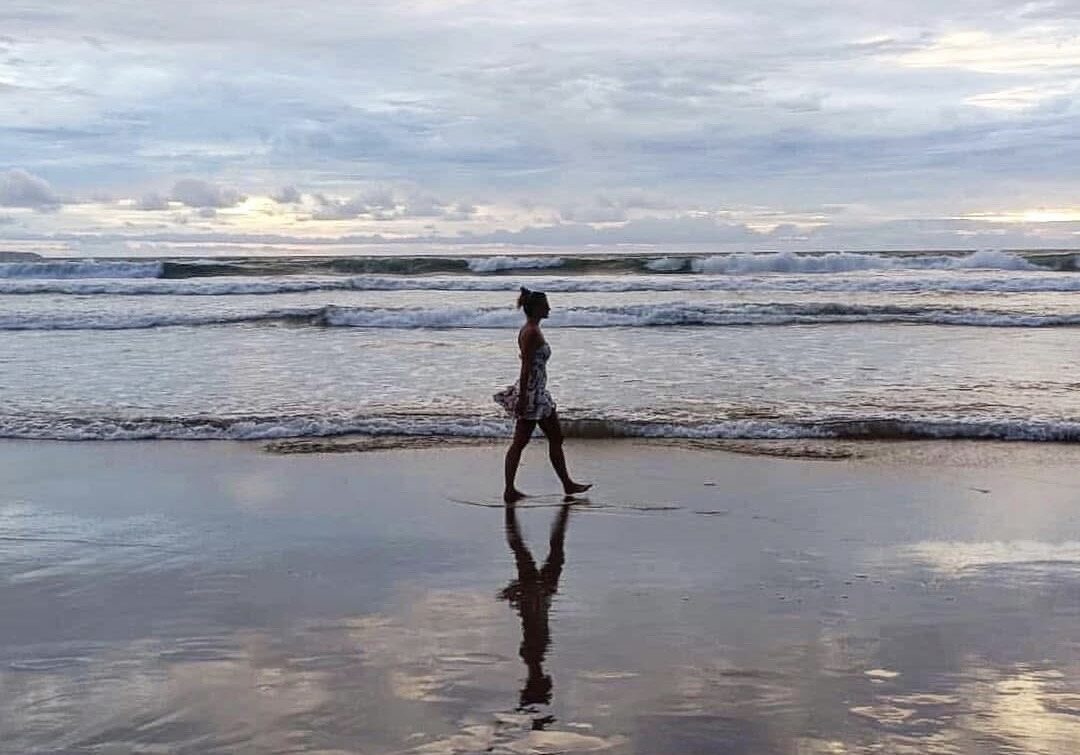
Do you ever go back to Italy? What is your relationship with your home country today, and what do you miss the most when you’re away?
Yes, I spend about six months a year in Italy, from April to October. I arrive with spring, with that mild Mediterranean climate — one of the things I miss most in Southeast Asia.
But what I miss above all are the people I love, going to the cinema, walking through a European-style city, and reading while drinking a cappuccino.
It’s an easy answer that comes out naturally because over time I’ve realized these are the things I savor the most as soon as I return.
For someone considering moving abroad and working online — maybe even in Bali — what advice would you give to face the change with lightness and awareness?
For remote work, Bali is an “easy” destination: the internet network, the abundance of work-friendly spaces, the beautiful cafés, and the widespread availability of Wi-Fi make it a place many people feel drawn to and end up staying for long periods.
The logistical things to consider are mostly bureaucratic and organizational.
I usually stay in Bali for a couple of months a year, which is the maximum allowed on a tourist visa. Staying longer requires planning trips outside the country or applying for a different visa — which is far from simple in a country like Indonesia.
For everything that’s not logistical, though, it becomes an exploration of places and of yourself — each person with their own sensitivity, lightness, or heaviness. It’s an island that will know how to give each of us the advice we need.
Thank You, Laura!
A heartfelt thank-you to Laura for sharing her time, her reflections, and such an intimate look into a life lived between continents. Her journey reminds us that transformation often begins quietly — in the choices we make, in the places that shape us, and in the courage to create new versions of “home.”
If you’d like to follow her work, her travels, or her insights on well-being, you can connect with her here:
Dr. Laura Princivalli
Website: psicoterapeuta-online.com
Instagram: @princymilan
Phone: +39 347 111 8648
Email: info@psicoterapeuta-online.com

